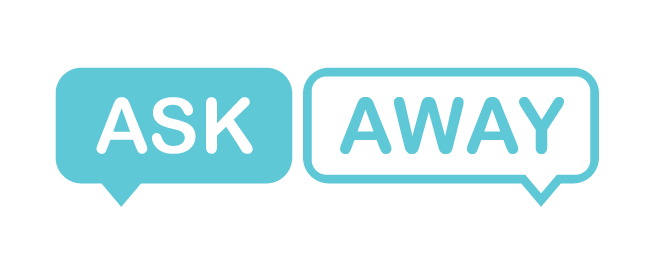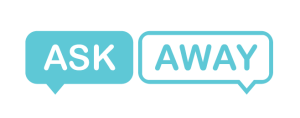When I open a vacancy, I receive sometimes, hundreds of resumes. A few are bad, a few are very good and the majority is mediocre. And it’s not just that the experience or background is good, or bad. Sometimes the resume itself isn’t good. Now, with unemployment numbers at record highs, it has never been more important to ensure your resume stands out if you want to have a chance.
Before you even get to worry about “tell me about yourself” and “tell me your weaknesses“, you have to get to the desk of the hiring manager.
You don’t need to do much to ensure your resume stands out. Here’s a few tips to make your life easier (have an automated recruitment system swallow your information the first time without you having to correct it), and help recruiters and hiring managers look twice – and have them see what they like.
It’s all about KISS.
1. Layout is key
Couple of basics: you can start with a short summary of you as a person and what makes you, ‘you’. But as it takes room, it needs to be something special. Me and my colleagues in recruitment won’t be upset if we won’t find it in yours.
Start with your employment history. Recruiters care about the roles you had, responsibilities and accomplishments, and things like skills and education, you can list later. Those are more ‘check-the-box’ items. Start with your most recent experience at the top of the resume, and work down.
2. Be Relevant
As a hiring manager, I cannot begin to explain how frustrating it is to receive resumes of candidates that do not, in any way, qualify for the job. Remember – if an automated system doesn’t kick you out of the process, it means that a hiring manager or recruiter has to read the resume (and even when it’s only glancing, even then the recruiter has to invest time). It means another process to follow and steps to complete.
I am not talking about stretching it a little bit, I mean when you clearly miss crucial or required steps from the job posting. If you don’t apply for those roles, it means that you save everyone time and effort, and that includes you. It also means that you won’t have to start with a 1-0 disadvantage, explaining why you think you’re a fit.
3. Include and emphasize the relevant
First of all, customize. When you work on you resume, you aim for 2 pages, at the most. So, all the information on the resume needs to be aimed at the role you apply for. You can’t have that with a standardized, generic resume: your resume gets noticed because it is specific and relevant.
Even though your experience may be relevant, a company may have an interest in a specific field: you may have broad experience in accounting, but if the company mentions US GAAP a few times, take that as the sign to adapt your standard resume to include these principles, and their 4 basic constraints (accounts, you know what I am talking about – leave the answers in the comments for extra points).
Instead of mentioning what you have done, focus on what you have accomplished in your roles. List your sales number increases, patents, savings, major milestones, anything that shows your value, and sets you apart from your competition. Make sure to include skills, and indeed, make those relevant. Listing your MS Office skills is hardly special in this day and age, so, best leave them off. However, if you are proficient in Access, Macro’s or Visio, or similar specific software packages, and they are relevant for the role, you may want to list them.
4. Exclude the irrelevant
You only have a little bit of real estate on your 2 pages, and you can be sure that the recruiter who reads your resume doesn’t have much time. So, leave out things that don’t matter. It reduces clatter, and it looks more powerful because you focus on what matters.
Also, and this plays a role in the United States particularly, recruiters can’t discriminate on a number of items. Don’t list anything that is part of a protected class or which could easily point into that direction. Don’t list religion, marital situation. Also, don’t list your address. You want to avoid a commuting discussion before you even talk about the job itself, and even something as simple as an address could bias a recruiter. Clean is good!
5. Make it look good
As said, to ensure you don’t have refill all the fields in ATS applications, use a simple, standard layout. Unless you are looking for a job in design or arts, a simple resume highlights your skills, and it makes processing easier. Use a simple, classic font. Don’t make it too small, or too big. If you need to limit your font size to make it to 2 pages, you need to weed out the text itself. On the other hand, if you are starting out and you struggle to fill 2 pages, use internships and extracurricular information to help showcase your experience.
Check, double-check and triple check for typos. Then have someone else check it, and after that, check it again. I am sure that there is a statistic that tells that the majority of people see the spelling error when they read the message and resume in their sent items. Don’t be a statistic. Don’t stand out for the wrong reason.
Even something as simple as to improve how you save your cv, will help you get noticed – or prevent going unnoticed. When you save your resume, save it as a PDF, and save it as “First Name Last Name Resume”: your recruiter will thank you.
If you list your LinkedIn account (and you should), make sure you change the link to show the very professional linkedin in NAME. You can find how to change, here. Oh, while we’re on it: never list your FaceBook account. Keep those lives separate.
I am currently on my 28th rendition of my resume. Every time I update mind to follow the latest rules and guidelines, I am proud of the document, and what I have achieved. I am pretty sure you feel the same when you optimize your resume, and showcase your awesome journey to date. Good luck in your applications!
To Conclude!
Let us know if any of this helped you, and for sure, let us and the community know any additional tips for a killer resume.









